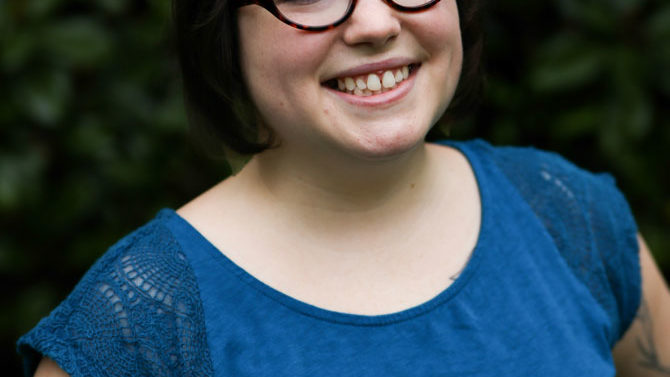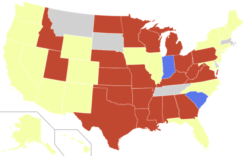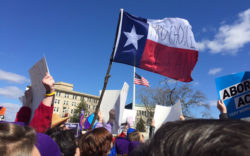This summer, The Center for Medical Progress, an anti-abortion organization, created a fake research facility, hired actors to infiltrate Planned Parenthood and released an incendiary, heavily edited video of their undercover actors speaking with Planned Parenthood employees, splicing it with tape from unknown medical facilities. The narrator claims that Planned Parenthood is harvesting fetal tissue and organs for profit, but according to the nonpartisan, nonprofit website FactCheck.org, the video “shows a Planned Parenthood executive repeatedly saying its clinics want to cover their costs, not make money, when donating fetal tissue from abortions for scientific research.”
The video has reignited a national debate about about abortion, which makes up only 3 percent of the services offered by Planned Parenthood. Though the U.S. Senate has blocked a House-approved bill to defund the organization, Republicans have threatened to shut down the government by refusing to pass a funding bill if money for Planned Parenthood is included.
Where does our town stand in this chaotic milieu?
Athens does not have a Planned Parenthood clinic or any facilities where abortions are performed. This means that abortion is only available to those who can both afford the service and obtain transportation to Atlanta or Augusta. Laws limiting abortion rights disproportionately harm women of color and women below the poverty line. Helping Athenians obtain the support they need has fallen onto the shoulders of grassroots organizations.
The Athens-based Georgia Reproductive Justice Access Network has worked to close the resource gap among people of different backgrounds by providing practical support: transportation, housing, meals, aftercare prescriptions and emergency contraception and birth control. This fall, they’re reintroducing themselves to the community as the Magnolia Fund. Flagpole sat down with co-founder April Greene to discuss their plans.
Flagpole: Where does the name Magnolia Fund come from?
April Greene: We wanted a name to connect us to this unique region. The Magnolia—a strong, long-lasting and distinctly Southern flower—signifies our steadfast dedication to supporting people in making the reproductive health decisions that are best for them. It also speaks to our unique work in the Southeast, an area of the country that is deeply rooted in community, supporting each other and taking care of our own.
FP: I read on your website that the new name marks a commitment to an intersectional approach. What does this mean?
AG: A little over a year ago, another board member and I had the opportunity to attend a [convention hosted by] the National Network of Abortion Funds. We received amazing training from Cherisse Scott, founder of SisterReach, Tennessee’s only reproductive justice organization. It helped us finally articulate our fund’s weaknesses, particularly around racial justice. It was a turning point that was repeated throughout the year at different events hosted by women of color-led organizations. It pushed us to recognize our privilege, de-center our perspectives and work to do better.
FP: Are you introducing new board members?
AG: We’re not introducing new board members right away, and that’s one of the issues we wanted to address with the new name and fund identity. Since our inception, we just haven’t done enough to make our fund welcoming or accessible to potential board members or volunteers from different backgrounds. Too often, we didn’t want to ask why only white, middle-class, cisgender women were comfortable joining our board. This is our public acknowledgement of that, and our public commitment to making it right. In the coming months, we plan to start recruiting for new board members by working directly with the organizations and communities whose members would strengthen our fund and this movement more broadly.
FP: Are you still exclusively partnering with Atlanta’s Feminist Women’s Health Center for abortion care?
AG: Our weekly funding budget is still reserved for clients receiving abortion care at FWHC, but we do sometimes provide funding for clients at other clinics on a case-by-case basis. We’ve recently started providing practical support to clients at Atlanta Women’s Center and plan to [do the same for] at least one more clinic soon.
FP: Are you offering services or resources that you did not before?
AG: Although we’re not currently offering new services, we are developing a new full-spectrum doula program and hope to launch sometime early next year. I’m so excited about it! Doulas working to improve outcomes for low-income communities and communities of color are directly challenging reproductive oppression, [especially] when doulas are trusted members of [those communities]. Beyond birth work, reproductive justice activists have recently begun applying the principles of doula care to abortion, miscarriage, stillbirth, fetal anomaly and infertility. GRJAN volunteers are already committed to providing abortion support using a doula-centered approach that recognizes practical support must include providing emotional and spiritual care. Eventually, we will harness the expertise we’ve gained to develop within Magnolia Fund an independent full-spectrum network that provides support for birth, abortion, loss and other pregnancy outcomes.
FP: Are you offering new volunteer opportunities for folks who want to get involved in reproductive justice? What can people do to get behind what you’re doing?
AG: We’ll be fundraising to support the doula program and recruiting potential doulas in the next few months. We also think the practical support program, [which includes driving people for abortions and donating funds], is one of the best ways for volunteers to learn directly about the barriers marginalized folks face when trying to make the reproductive decisions best for themselves and their families.
FP: Do you have any comments to offer on the recent House vote to defund Planned Parenthood?
AG: “Ugh” is about my only comment. After spending several weeks working nonstop to help a client get to and pay for her abortion appointment, I have nothing but contempt for those who are working to make reproductive health care less accessible. We’re taking our lead from Planned Parenthood and mobilizing our supporters to show their support by standing up for Planned Parenthood and other providers, calling their representatives to share how reprehensible they think this decision was and continuing work on the ground to make reproductive health care a reality for all those affected by [proposed] budget cuts.
FP: Your new website and name heavily emphasize Southern roots. Besides this being your service area, what about the South defines the spirit of your organization?
Greene: Abortion rights and reproductive justice activists in the South are often ignored or misunderstood. Blue-state progressives don’t get why we focus our efforts in such a hostile region, and conservatives constantly do what they can to make our work harder, but that’s exactly why we’re here—to eliminate barriers to reproductive justice and to change perceptions about folks who live and fight for justice in the South. By tying our work directly to this place, we’re telling those in the South that we’re here to make abortion and reproductive health care more accessible. We’re not going anywhere. I think that’s a uniquely Southern challenge.
Like what you just read? Support Flagpole by making a donation today. Every dollar you give helps fund our ongoing mission to provide Athens with quality, independent journalism.










